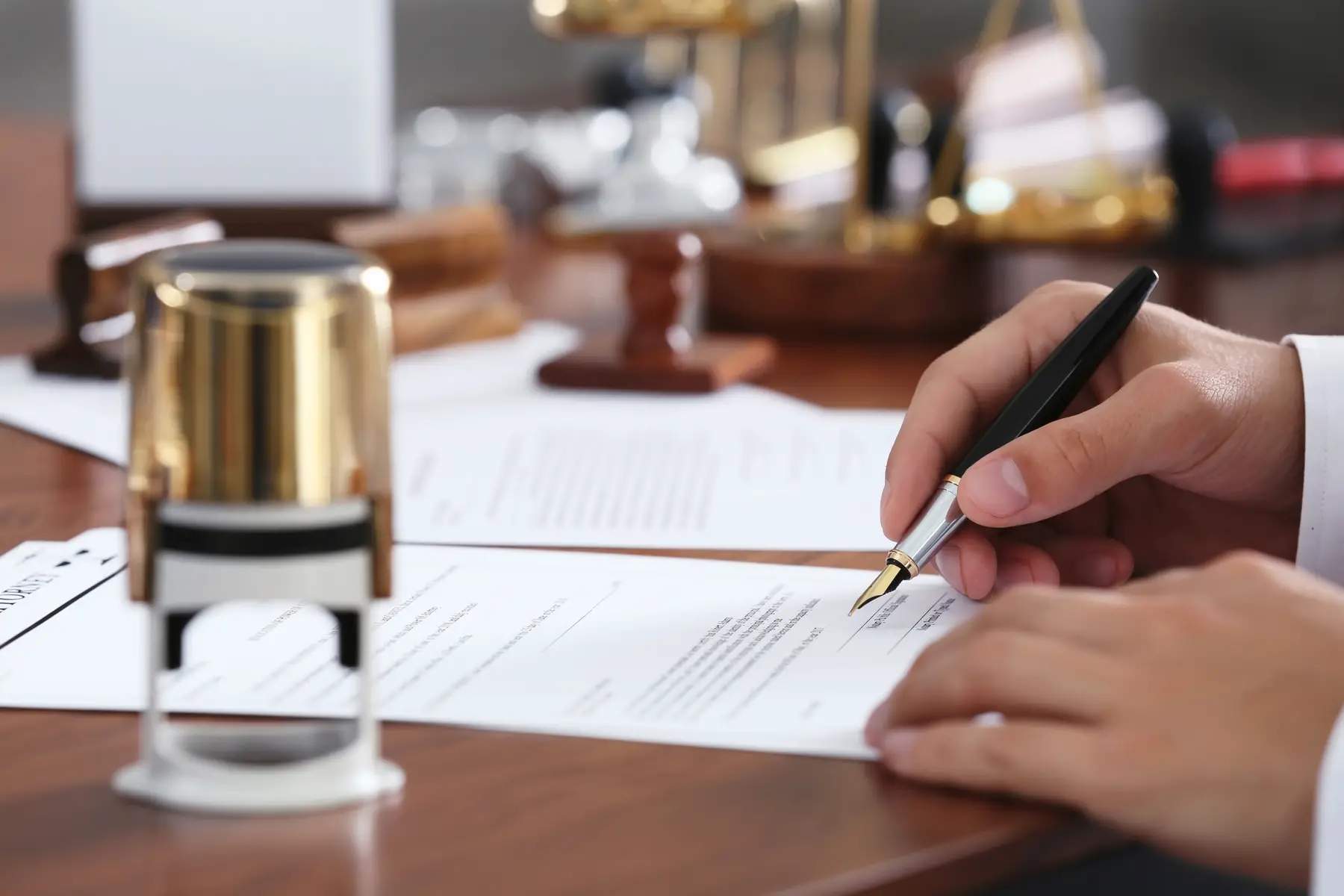Wills in France can take several forms, from pen-and-paper versions to secretive letters only seen upon death. If you are a resident of or have assets in France, be sure to express your final wishes in a document.
The current French inheritance system is based on a long history of family scandal and generational wealth, explaining the non-negotiable element of forced heirship. If you’re writing a will in France, do your homework and seek professional assistance if needed.
This article will walk you through the inheritance law in France, as well as how to write the various kinds of wills.
CurrencyFair
When planning for the future, make sure you keep your money secure and find the best rates for international transfers. CurrencyFair allow you to move your money abroad securely at just the touch of a button. Whatever your personal or business needs, find a rate that works for you at CurrencyFair.
Wills and estates in France
The French inheritance system is fairly standard and rigid – so much so that many French people don’t even have a will because they know that the inheritance laws cover their family.
If you’re a non-resident, though, with assets and/or loved ones outside of France, it’s best to make a will expressly noting your wishes. Notably, heirs have an inherent right to a portion of the deceased’s estate, which includes the likes of bank accounts, investments, and properties.
Inheritance law in France
French inheritance law derives from the French civil code, using a residence-based system regarding inheritance law, meaning that French inheritance law applies to all French residents regardless of nationality.

French inheritance laws practice forced heirship, protecting the direct line of descent – that is, children, grandchildren, and parents. In fact, depending on the number of children, a certain portion of the inheritance must be set aside. The figures are as follows:
- If there is one child, they receive 50% of the estate.
- If there are two children, they receive 66.6% of the estate between them.
- With three or more children, they receive 75% of the estate between them.
- If a deceased person leaves behind no children, any living parent receives 25% of the estate (50% if both parents are alive).
Inheritance law on pensions in France
Whether loved ones can access the deceased’s pension depends on a number of factors, including the type of pension, as well as the age and the income of the surviving family member(s). You will not automatically get this but, if you qualify, you can apply.
Your best bet is to seek professional advice on your options, because an expert can look at all aspects of your specific situation.
Applicable foreign inheritance laws in France
French inheritance law recognizes wills drawn up in other countries as long as they conform to the legal standards of that country. This means that foreigners living in France don’t have to draw up a French will.
You might consider writing a French will, however, if you plan to use French inheritance law or if you want to have a French-language will.
Rejecting assets and contesting wills in France
Children can renounce their right to a French inheritance, if done in the presence of two notaries. However, you cannot revoke this after the death of the parent.
Because French inheritance laws are so rigid, there are only a number of situations in which you can contest a will, for example, if it excludes the entitled heirs.
In certain cases, heirs can even bring forward court cases to challenge gifts that the deceased gave during their lifetime! If you’re considering contesting a will, be sure to get professional help.
Inheritance law in France if there is no will
If a person dies without leaving a will, then French rules of intestacy apply. This means that the estate is divided between surviving children and spouse accordingly. The spouse can then choose either outright ownership of their share (minimum 25%) or life interest in the French property (the right to use it throughout their lifetime). In these cases, ownership of the whole estate is divided between the children.
Unclaimed inheritance in France
French inheritance law prioritizes close relationships, such as spouses, children, grandchildren, parents, and siblings. However, if none of those relatives are living, assets pass on to aunts, uncles, and cousins. If there are no living relatives, then the inheritance will pass to the state.
Gifts before death
Assets that are given as gifts during someone’s lifetime are subject to similar rates to French inheritance tax rates and are offset by similar allowances. The main difference is that there is no exemption from gift tax between spouses/partners, although the tax allowance on gifts between spouses/partners is €80,724.
You can make tax-free gifts up to the designated tax allowance once every 15 years. Additionally, the 15-year period needs to have expired for the gift to be excluded from the estate of the person giving the gift.
In other words, if you gift someone an asset within the tax-free allowance and then die before the 15-year period has passed, it will be added to the value of your estate for French inheritance tax calculations, plus some other tax costs may be incurred.
Wills in France
Everyone, resident or non-resident, should make a will to make sure that their last wishes are documented. If you are a foreign resident in France and haven’t stipulated in any will that you want the laws of your country of nationality to apply, then French inheritance law will automatically apply.

In an international will, if you leave proportions of your estate that encroach upon the reserve that has to go to recognized heirs, then these amounts will have to be reduced.
Can I write my will in my own language?
You can write your will in English, or another language, under an international will introduced in 1994 for foreigners and French citizens living abroad.
It is permissible to have two wills – a French will and one drawn up in your home country – as long as one doesn’t accidentally revoke or negate the other. It is best to consult with a solicitor first if you are thinking of doing this.
Can I make changes after the fact?
It is possible to change or revoke a French will at any time because creating a new will automatically nullifies the existing will. If you want to revoke a French will, then you can simply destroy it if it’s a holographic will. However, with other wills, a declaration needs to be made in the presence of a notary.
Types of wills in France
There are three types of will in France:
- Holographic will (testament olographe): a basic French will that requires no formality.
- Authentic will (testament authentique): a French will that is made in the presence of a notary and signed by witnesses. This will cost around €150–200 (the French notary organization maintains an official list of notaries).
- Mystic will: a secret will sealed in an envelope.
How to write wills in France
The process for writing a will depends on which kind of will you choose, and how much professional outside support is necessary.
Holographic French will
This is the easiest type of French will to prepare, although it’s also the easiest type to challenge the validity of if it hasn’t been drawn up correctly.
Holographic wills should be prepared as follows:
- The location and date of preparation should be clearly stated;
- It should be handwritten in black ink on plain white paper;
- Every page should be signed, numbered, and initialed;
- It should begin with the words ‘This is my will’ and then state the testator’s name;
- The full names, addresses, and relation to the testator for all of the beneficiaries should be clearly stated;
- Everything written needs to be clear and unambiguous;
- Details of executors and notaries (if chosen) should be included;
- It can be written in any language.
Holographic wills can be kept by the testator, a nominated person or filed at a bank or with a notary. It can also be registered by the Fichier Central des Dispositions de Dernieres Volontes (FCDDV).
Authentic French will
This is the most legally secure French will as it must be filed with the FCDDV by a notary. However, the notary will charge a fee. The process involves dictation by the testator, which a notary then types out. The testator and two witnesses then sign it in the presence of the notary.
Mystic French will
This is a secret French will where the contents remain unknown until death. It is written or typed by the testator, then signed and sealed in an envelope in the presence of a notary and two witnesses. The notary then creates a mark of registration on the sealed envelope.
Executing wills and grant of probate in France
Unlike in some other countries, like the UK, there is no grant of probate and nobody executes the deceased’s estate. Instead, assets vests directly with the intended beneficiaries. If this system is unfamiliar to you, do your research, and seek professional advice on how to proceed.
Estate valuation in France
The contents of your will obviously depend on your individual circumstance and, if you’re unsure about whether to mention a particular asset, you should seek professional advice.
Generally, though, your estate includes liquid assets (checking and saving accounts), investments, property, and pensions. Additionally, if you’d like to get an estate officially valued, you should contact a notary to handle the process, though keep in mind that you’ll have to pay their fee.

In certain cases, you must contract a notary, for example, if the deceased owned property in France, or if they left behind an estate greater than €50,000.
Inheritance tax in France
Inheritance tax in France depends on the relationship of the recipient to the deceased. Generally, the rates are as follows:
Spouses
Married couples and those in civil partnerships are now exempt from paying inheritance tax in France.
Parents, children, and grandchildren
- Tax-free allowance: €100,000
- 5% tax up to €8,072
- 10% on €8,072–€12,109
- 15% on €12,109–€15,932
- 20% on €15,932–€552,324
- 30% on €552,324–€902,838
- 40% on €902,838–€1,805,677
- 45% on over €1,805,677
Brothers and sisters
- Tax-free allowance: €15,932
- 35% tax up to €24,430
- 45% on more than €24,430
Other relatives up to the fourth degree
- Tax-free allowance: €7,967
- 55% flat-rate tax
Remote relatives and other beneficiaries
- Tax-free allowance: €1,594 (€159,325 if disabled)
- 60% flat-rate tax
Tips on planning your estate in France
France’s inheritance laws have changed significantly over the years but foreigners who assume French inheritance laws mimic those back home could be caught out. In fact, French laws are probably still quite different and the best way to protect your assets in France and abroad is to consult a notaire and, in some cases, making wills.
Furthermore, with more complicated situations – such as assigning a power of attorney, deciding whether to provide gifts during your lifetime or after your death and whether they should take the form of lump-sums of a regular income – it’s really important that you seek professional estate planning assistance! They are experts for a reason, and you don’t want to make mistakes on such a vital document.






